27 Essential Home Security Tips You Need to Know, According to Experts
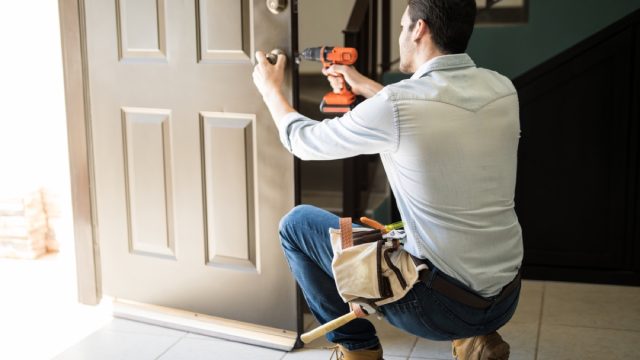
According to the FBI, more than 1.2 million burglaries took place in the United States in 2018 alone. And while drawing your blinds at night and keeping pricey electronics out of view are good places to start, there are plenty of ways even the most conscientious individuals leave their homes vulnerable to ne’er-do-wells. With the help of security industry experts, we’ve compiled a list of all the ways you should be keeping your home—and family—safe. You’ll want to implement these home security tips when you get home today!
1
Change all the locks when you move into a new house.
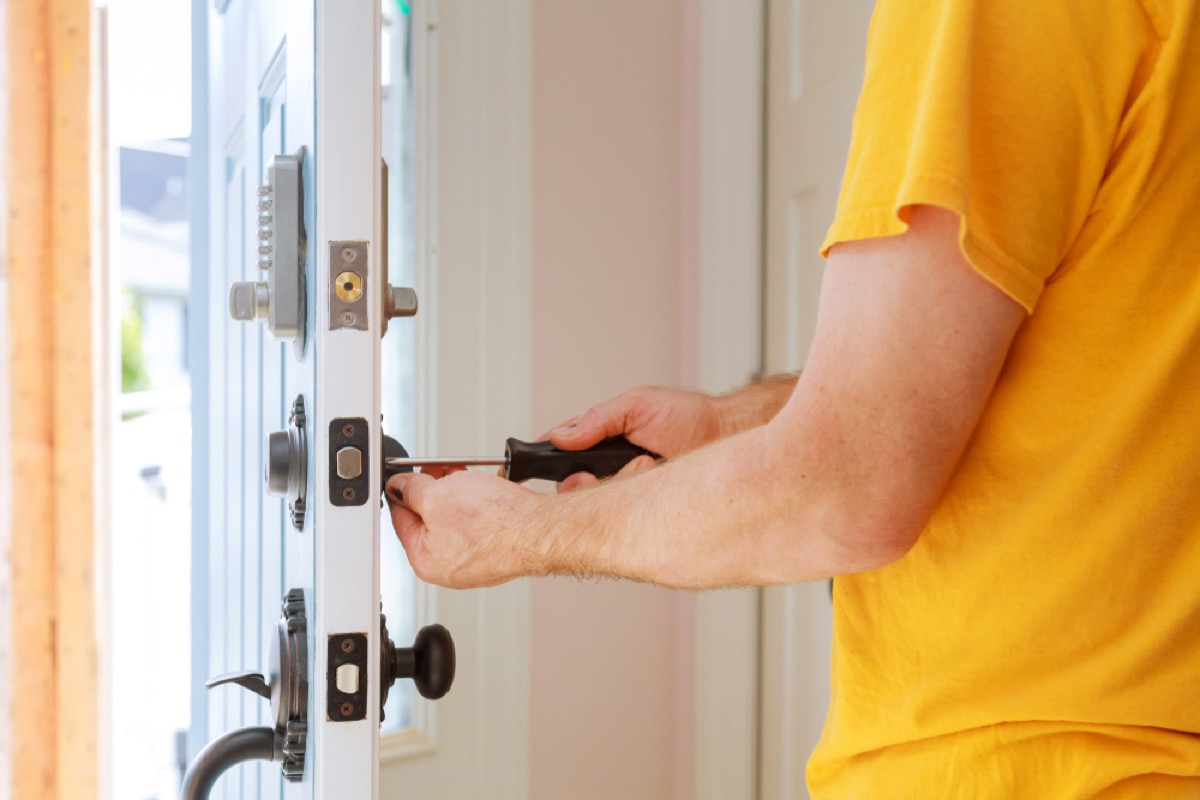
Even if your home’s previous owners insist that they’ve handed over every set of keys they have, it’s still important to change those locks before you move in. Security expert Louis Wood, owner of Defend It Yourself and vice president of LAW Security Corp., says this is one of the easiest ways to keep your home protected. After all, you never know if the previous owner’s family members, dog walker, or babysitter has a spare that they can use to let themselves in.
2
Keep your doors locked during the day.
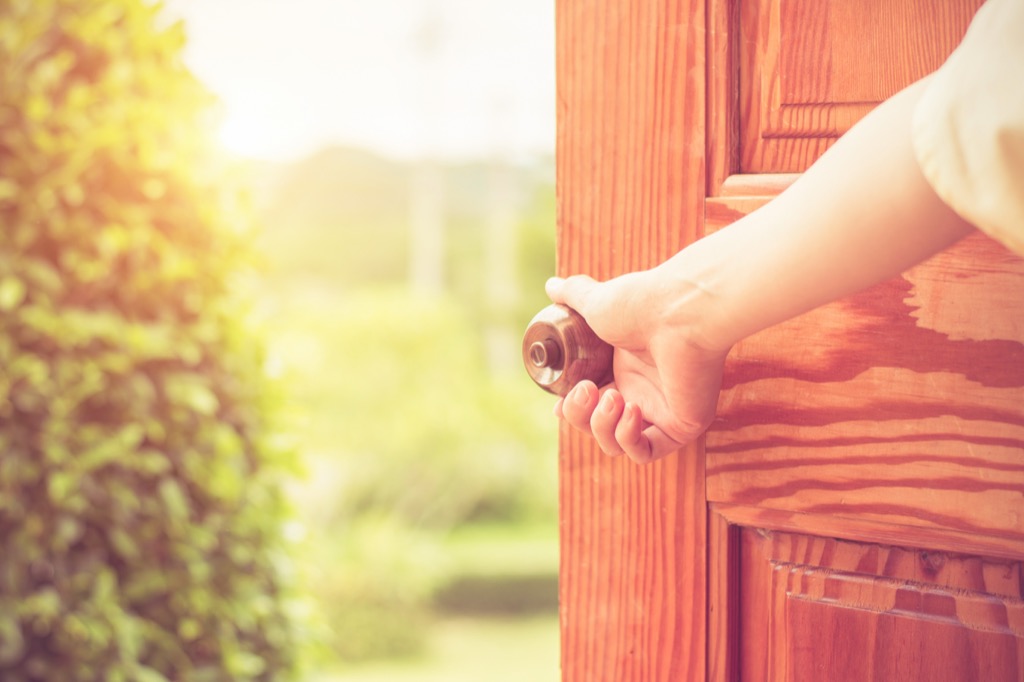
Sure, your town may seem like Mayberry to you, but that doesn’t mean there aren’t criminals waiting to prey as soon as you leave for work in the morning. According to a 2010 report from the U.S. Department of Justice, burglaries that took place when no one was home were 17 percent more likely to take place between 6 a.m. and 6 p.m. than they were from 6 p.m. to 6 a.m., giving you plenty of incentive to keep those doors locked during the day—frankly, whether you’re home or not.
3
Install motion lighting.
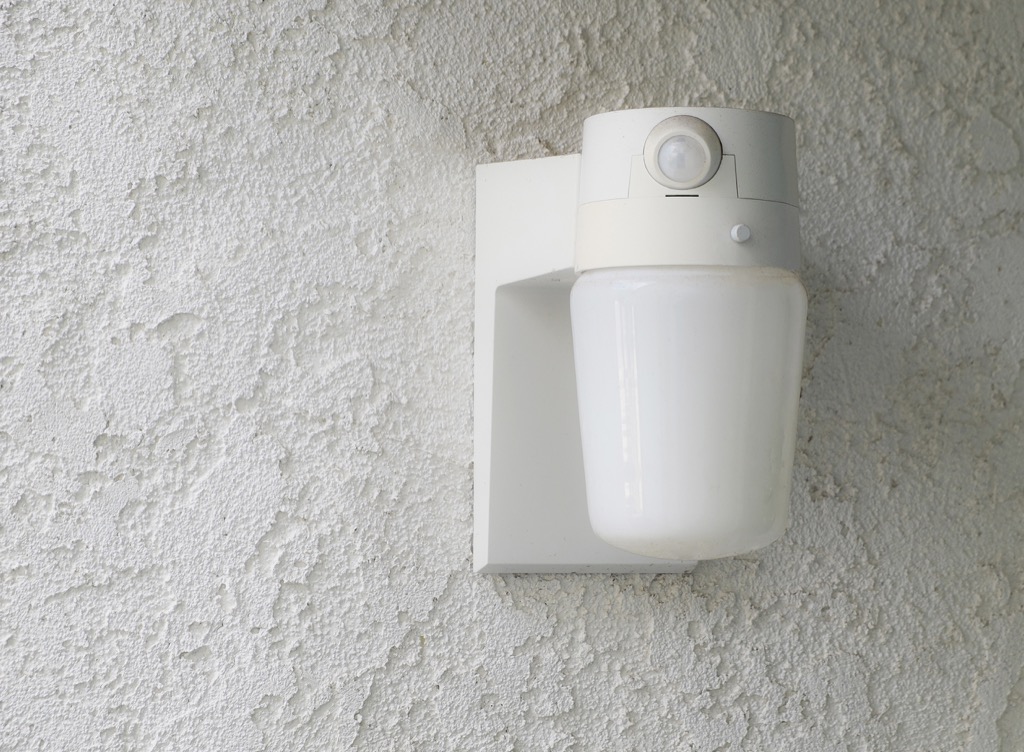
Even though most burglaries do take place during the day, a little motion lighting can fend off any criminals who prefer the cover of darkness.
Wood’s suggestion? Stick to the perimeter of your property. Seeing those lights flash on when they walk by “could prevent impulsive intruders from breaking in at night,” Wood explains.
4
Invest in a smart home system.
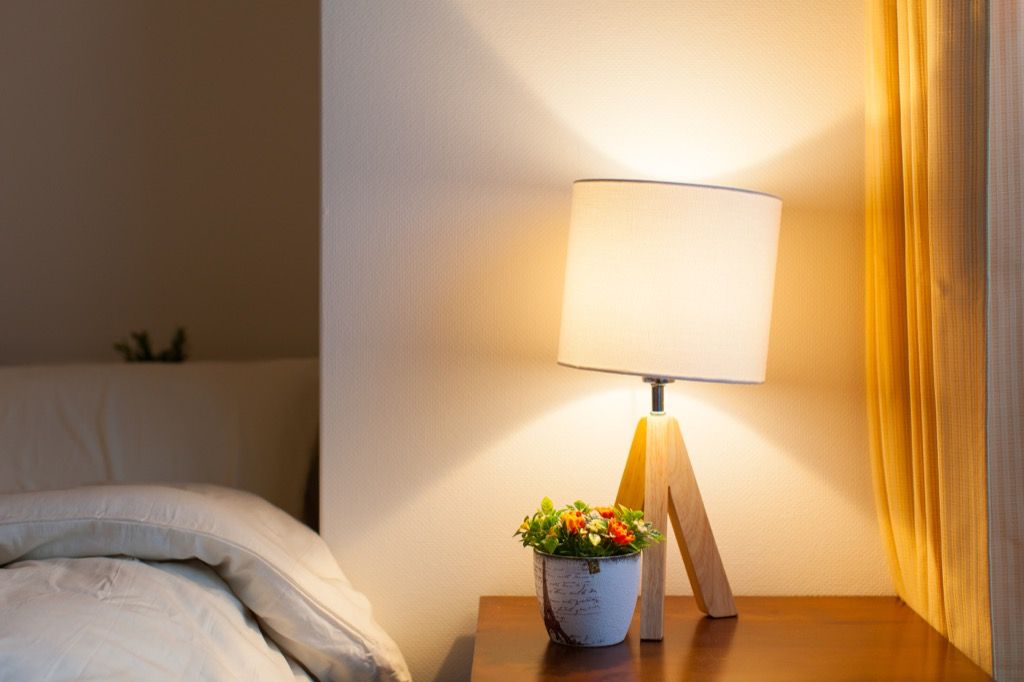
If you want to keep your home from becoming a target for burglars, “your house should appear occupied at all times,” says Wood. Short of using a house sitter every time you leave for work or vacation, a smart home system can help you turn lights on and off while you’re away to make it look as though you’re there. Wood also suggests using the same technology to turn your TV and stereos on and off periodically to make the house seem lived in, too.
5
Ask for IDs from anyone who tries to come into your house.

That landscaper who says the tree in your front yard is dangerous, the person from the gas company who says they need to inspect your house for a leak, or even police officers who say they need to come inside should always show you proof of ID before you open the door.
“Burglars will often knock on doors before breaking in to see if anyone is home,” explains Wood. If you have any doubts that someone is who they say they are, “check with the person’s office before letting him or her in,” he suggests.
6
Add some security system signs to your yard.
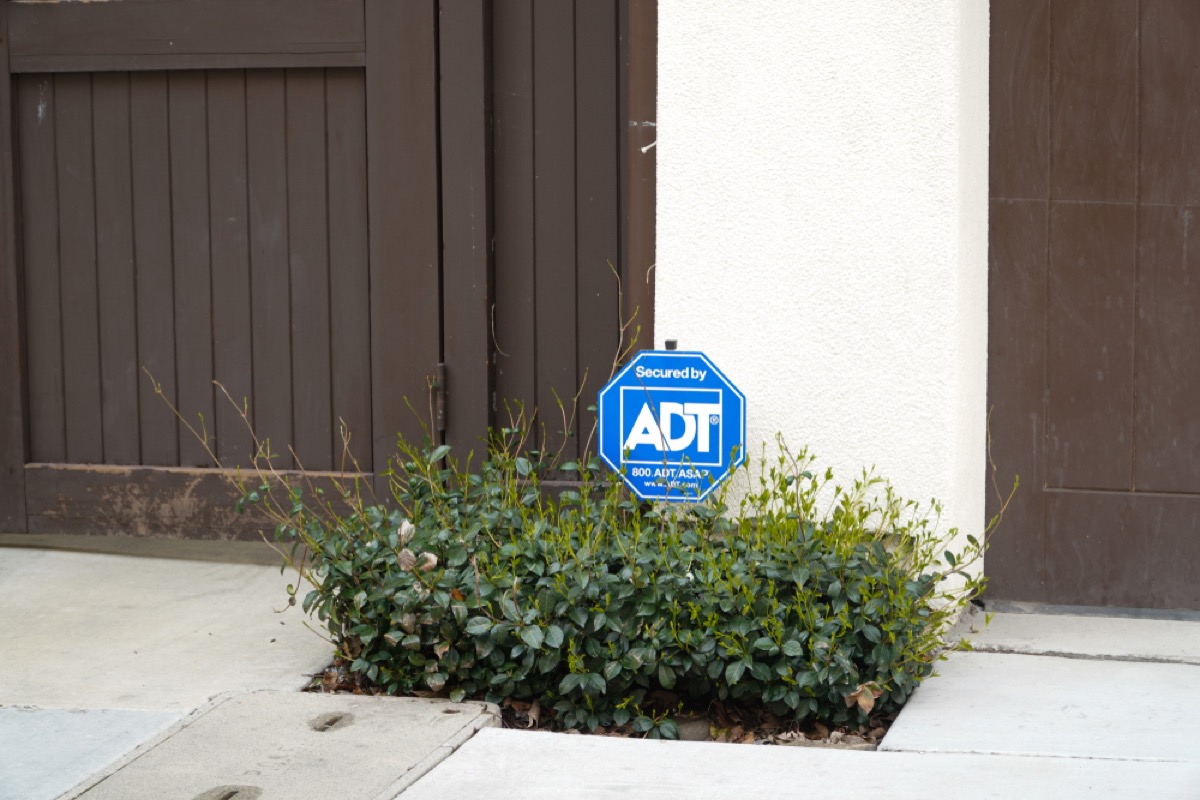
Something as simple as a home security sign in your front yard could keep your house safer—even if you don’t actually have the security system to back it up.
According to a 2012 report from the Department of Criminal Justice and Criminology at the University of North Carolina, Charlotte, 60 percent of burglars studied said that an indication that there was an alarm present would cause them to choose another property.
7
Make it look like you have a dog.
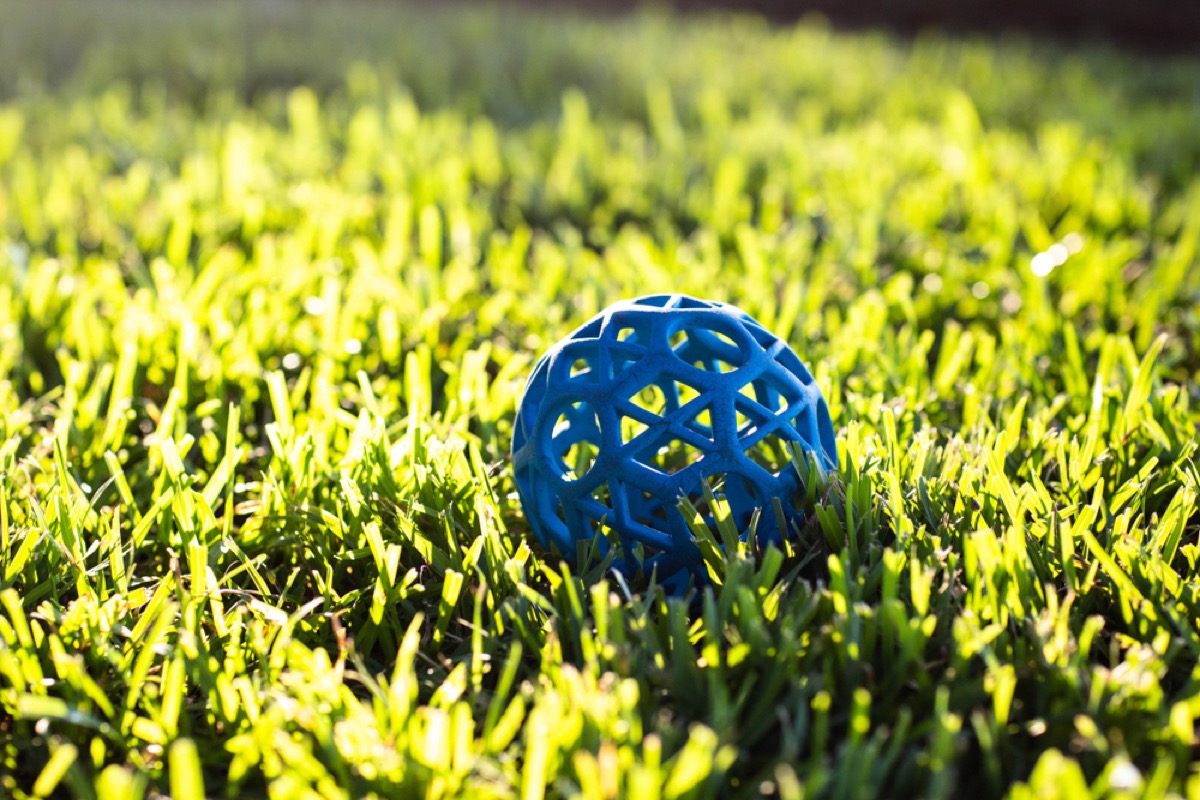
According to UNC’s burglary survey, most criminals did indicate that dogs were deterrents—and you don’t even need a real pet to get the job done.
“Drape a large leash over your outdoor furniture, place a large food bowl with water outside, and even throw some dog toys in the yard” to give the impression you have a protective pet, suggests security expert Robert Siciliano, private investigator for Porch.com and CEO of personal security company Safr.me.
7
Trim your greenery.
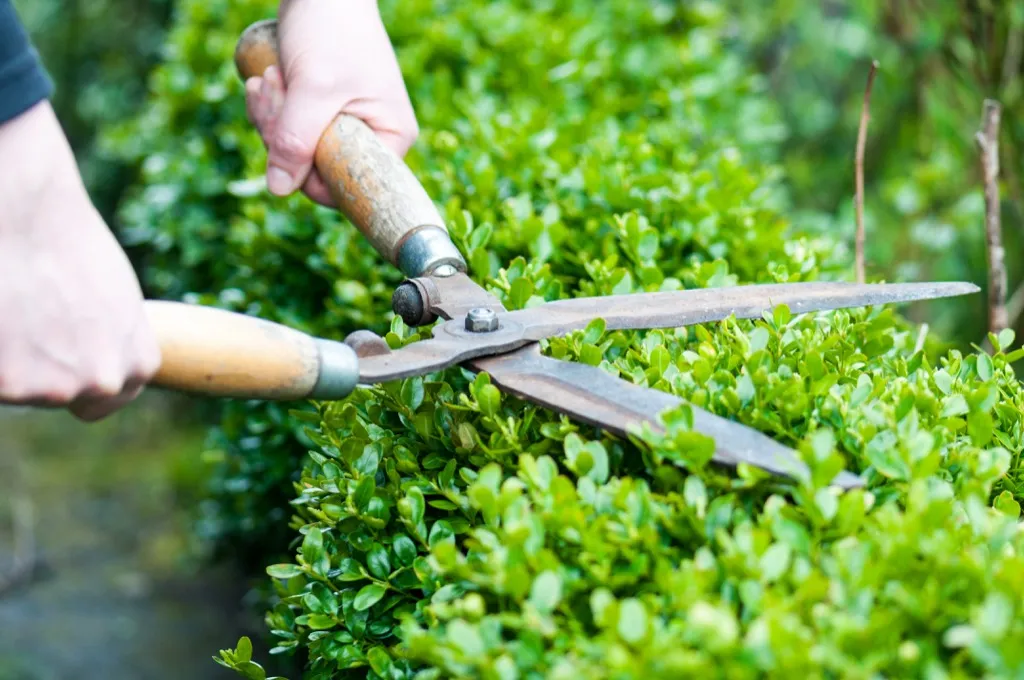
Since burglars want to do their dirty work away from prying eyes, Wood says it’s imperative that homeowners “cut back trees and bushes located near windows or doors that might shield a burglar from view.”
9
And have your landscaping maintained when you’re gone.
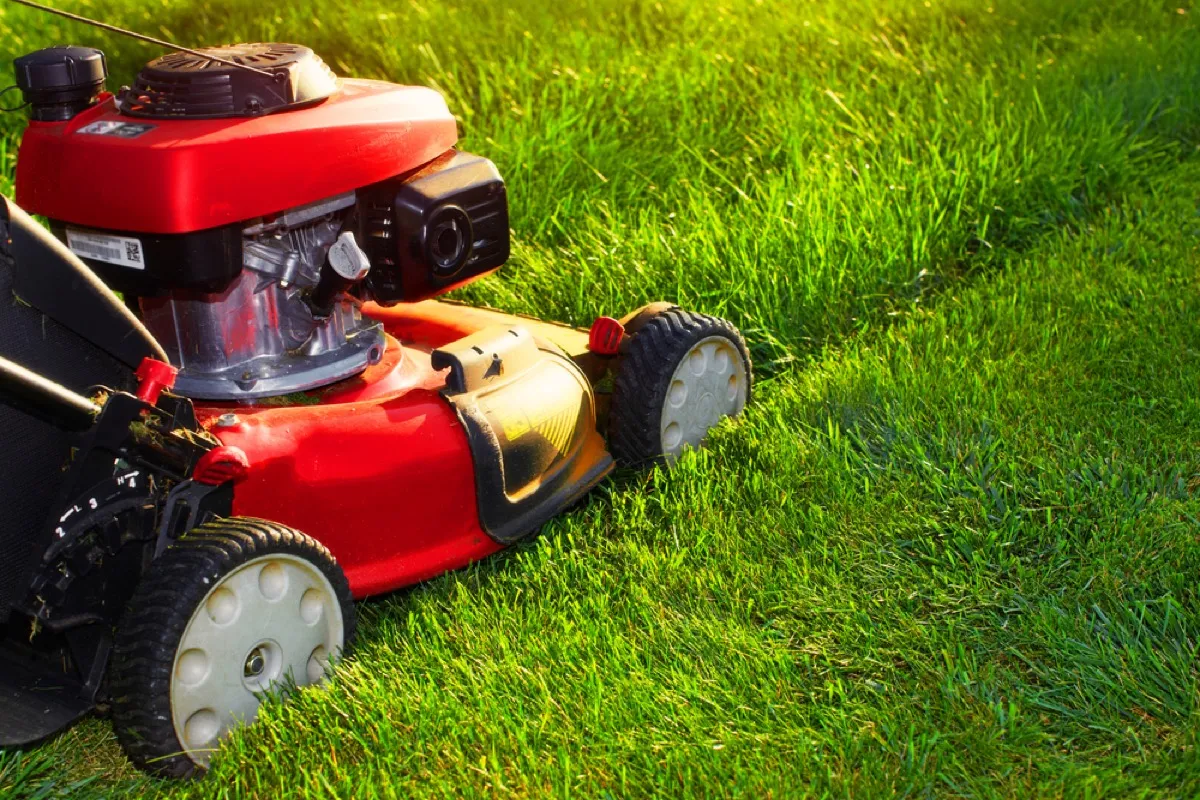
You’ve got your suitcases packed, your passports ready, and some beach reads in your bag. The only thing left to do before leaving on that two-week vacation? Call your landscaper.
Whenever you’re away from your house for a prolonged period of time, “arrange to have your lawn mowed so your yard doesn’t look like a vacant lot,” says security specialist Rick Musson, an 18-year law enforcement veteran and law enforcement consultant for Car Insurance Comparison. Letting those plants get overgrown is a surefire sign that nobody’s home.
10
Turn off your home phone’s ringer.
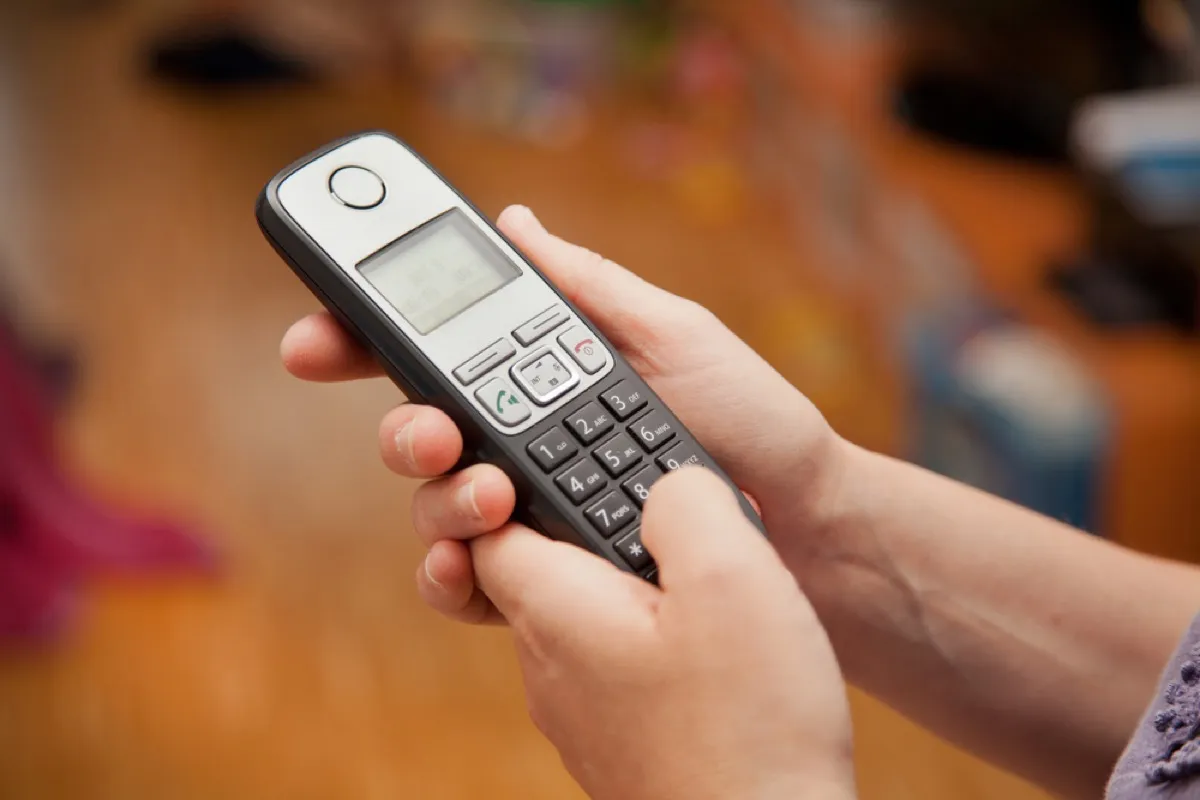
If you still have a landline at home, turn off the ringer before you leave the house. Siciliano says that if a burglar passing by can hear a phone ringing inside your home with no answer, that’s a pretty clear sign your house is unoccupied and an easy target. Similarly, “don’t say, ‘We aren’t home right now’” on your voicemail, or leave any outgoing email messages that indicate you’re on vacation.
11
Don’t leave notes for people on your door.
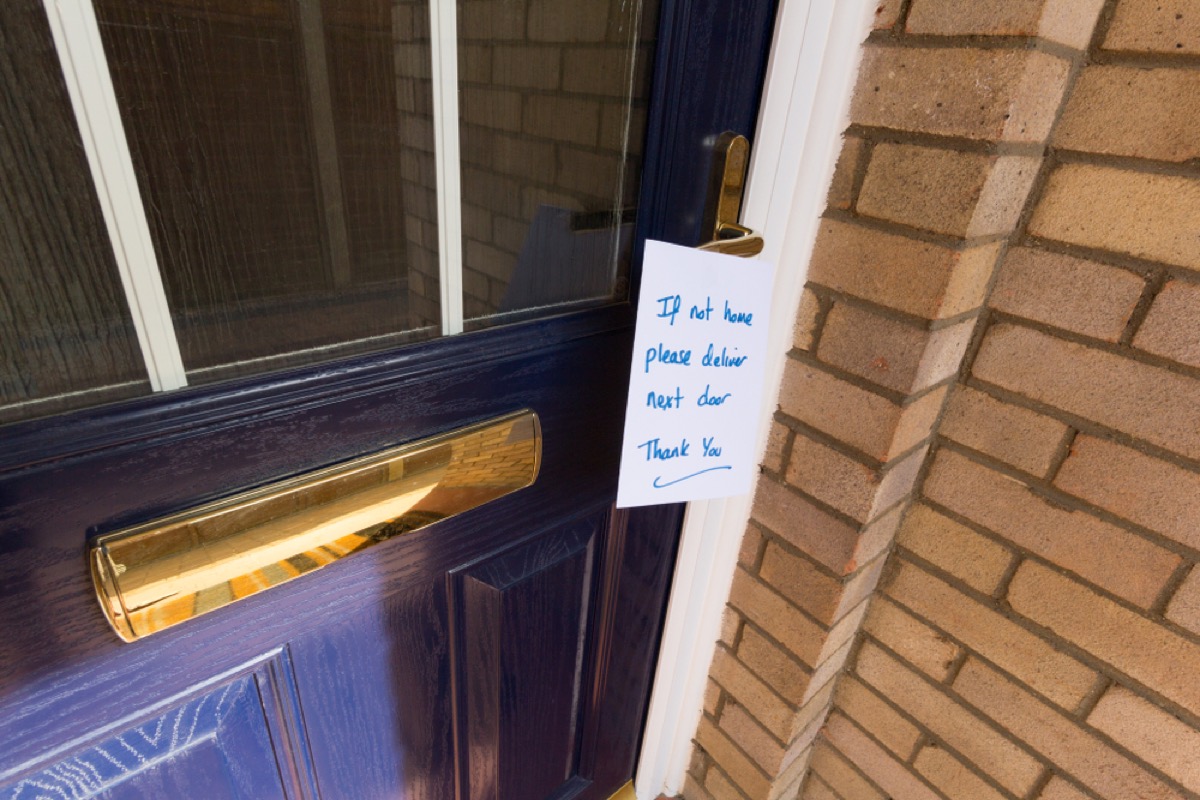
If you need to let the dog walker know when your pup last ate or if you want to give your mail carrier information about a package pickup, don’t do so by leaving a note on your front door, says Wood. Doing so screams, “Nobody’s home,” so when in doubt, provide that information in person or via phone instead.
12
Only share vacation photos once you’ve returned home.

Sure, you may be eager to rack up those Facebook or Instagram likes with your vacation photos, but delaying that gratification until you return home can keep you safer in the long run.
Personal safety expert Pete Canavan, host of the podcast Safety Talk , suggests that vacationers only put up photos from their trip once they’ve come home, as well as “refrain[ing] from posting any information about upcoming trips on social media” so as not to alert anyone that their house will be unoccupied.
13
And have someone collect your mail when you’re away.
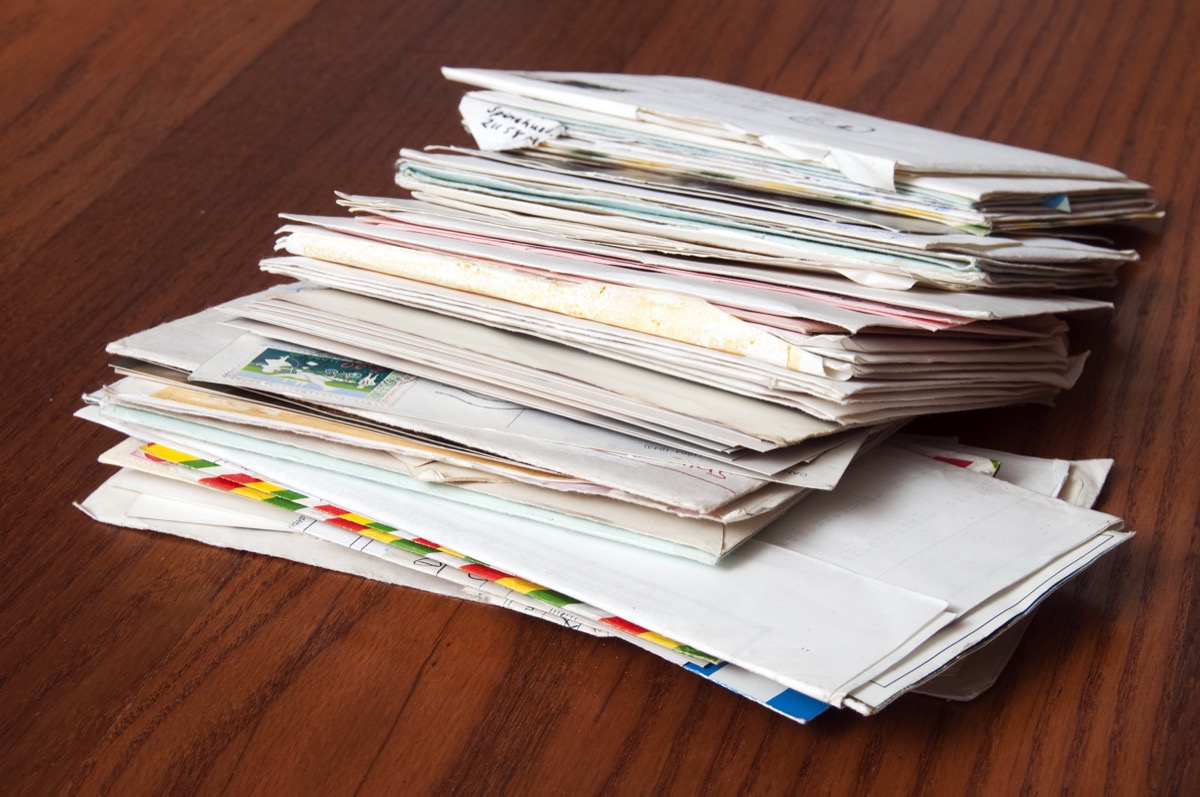
Nothing says “unoccupied house” like a pile of packages on the front porch.
“If you will be out of town for awhile, have someone come by and pick up your mail and newspapers,” suggests Wood. You can also have your mail held by the postal service for up to 30 days, meaning that overflowing mailbox won’t inadvertently put a giant target on your home.
14
Ask neighbors to park their cars in your driveway.
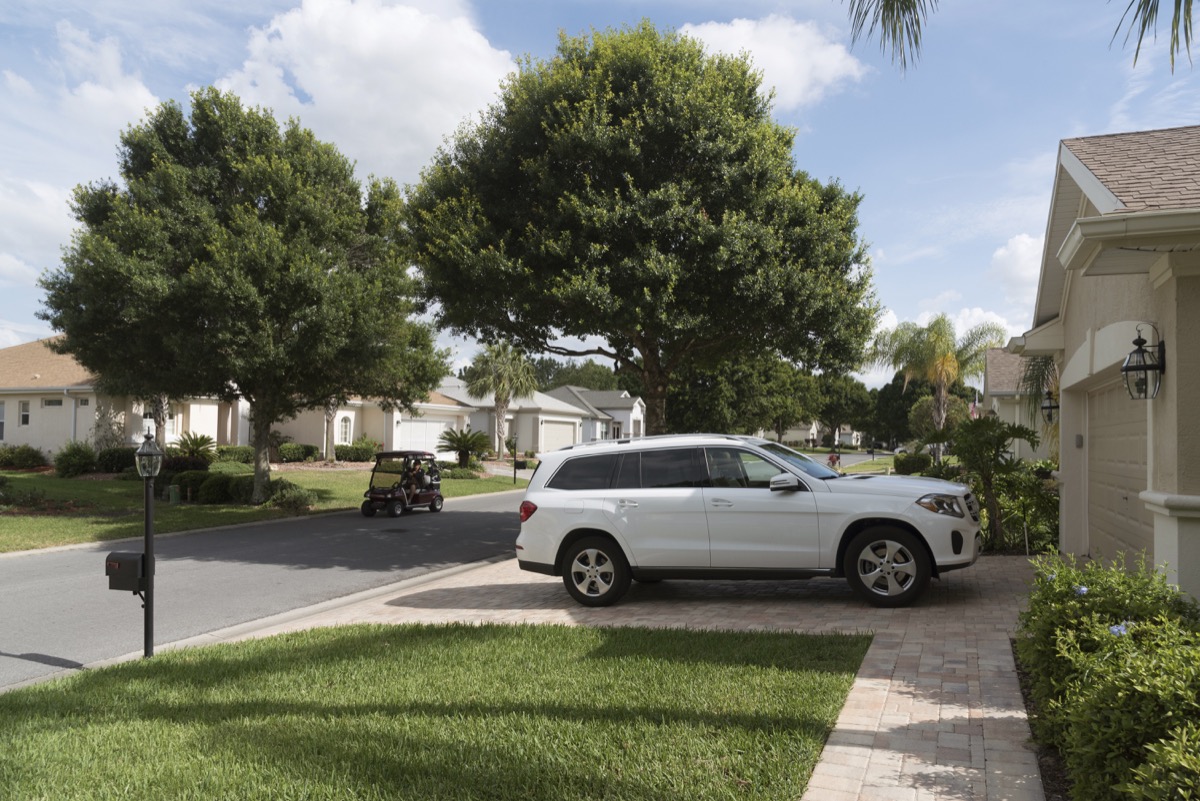
An empty driveway is a sure sign that your home is vacant, which makes it a tempting opportunity for burglars. If you’re going to be gone for any significant period of time, Siciliano suggests having your neighbors, family members, or friends make use of your driveway; simply having a car visible can be an incredibly effective deterrent.
15
Check your windows after having contractors in the home.
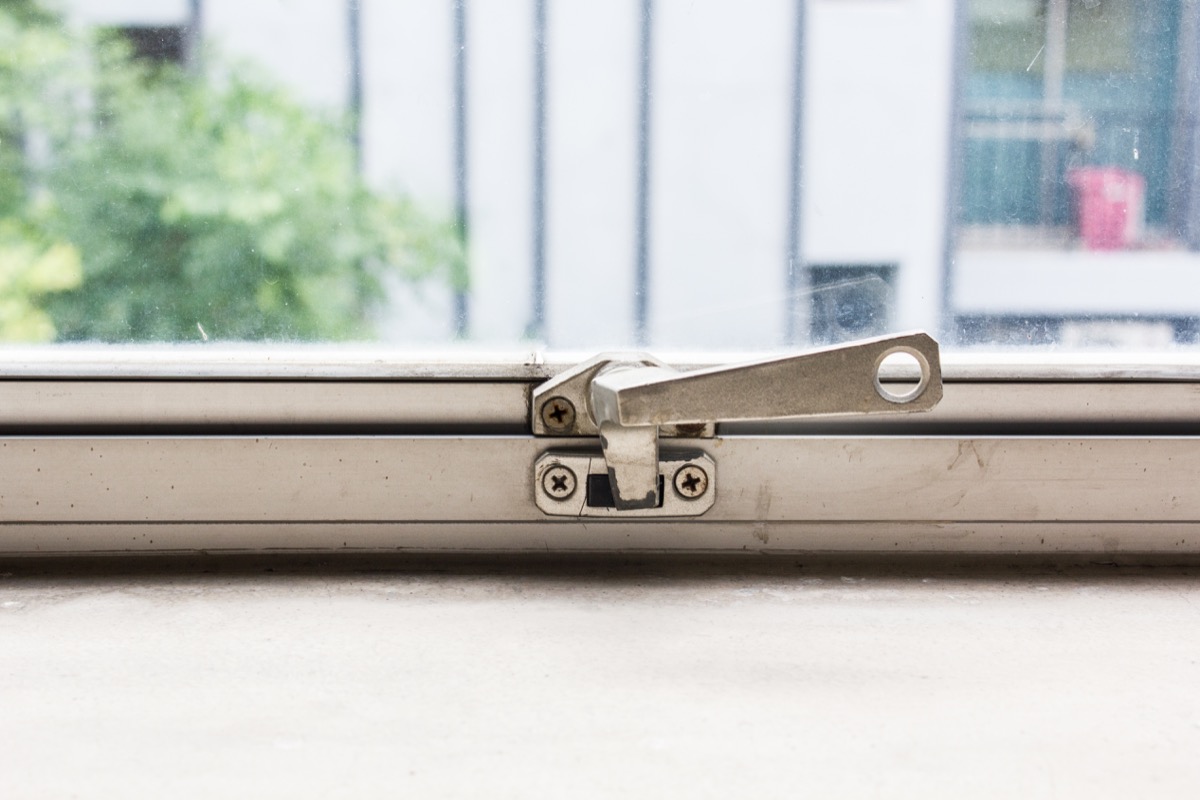
Any time you have someone new doing work on your home, make sure you check your windows after the work is done. “Sometimes, they leave windows open so that they can get in later,” cautions Siciliano.
16
Reinforce your first floor windows.
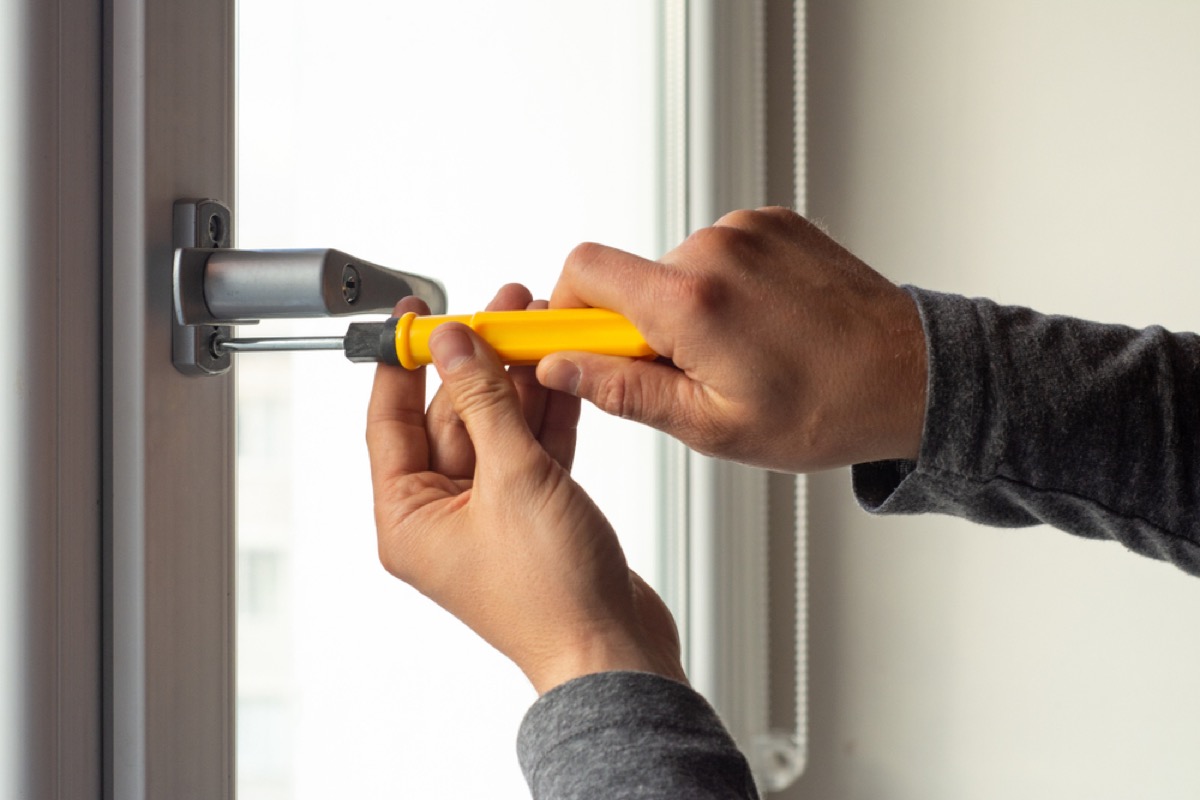
While those window locks provide a good first line of defense against intruders, adding some reinforcements to easily-accessible windows is always a good idea, says Canavan.
“First floor windows and doors… are the most common points of entry into a property,” he says. Adding in window security bars or even chimes that alert you when a window is opened can act as an effective deterrent.
17
Invest in a diversion safe.

While burglars may look for a traditional safe inside your home, odds are they won’t be taking every book out of your bookshelf or every soda can out of the fridge. That’s why a diversion safe—ones that “look like everyday items,” according to Canavan—are an easy and inexpensive way to keep your valuables safe.
18
Create an inventory of your valuables.

If you want to keep your home safe—and increase the likelihood that you’ll get your possessions back if you are victimized—there’s no time like the present to create an inventory of your valuables. Not only should this include a list of expensive items that you submit to your insurance company, Canavan suggests taking photos of each expensive item and noting “dates and any other identifying marks on them.”
19
Mark your valuables with a UV light pen.
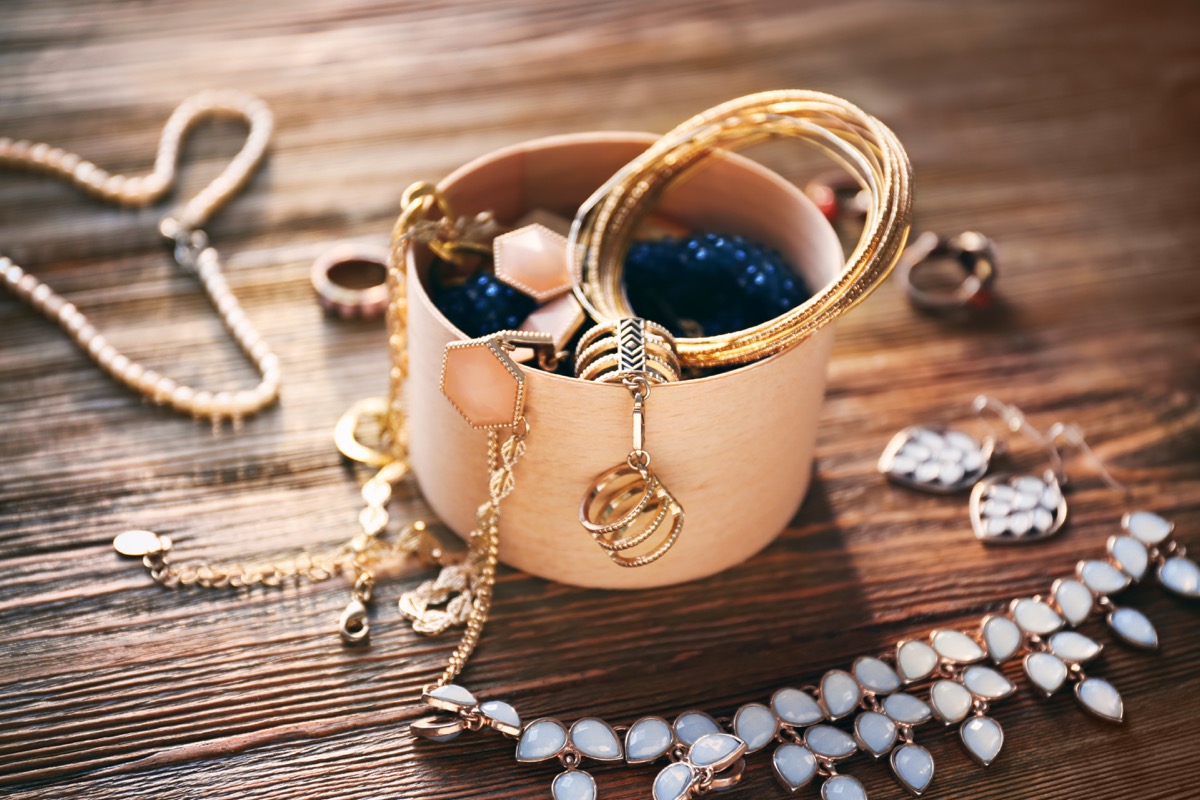
Not every crime is committed by a stranger—in fact, according to that aforementioned 2010 report from the Department of Justice, 65 percent of violent burglaries were committed by someone the victims knew. The good news? Even if your property does get stolen by someone you’ve allowed into your home, there’s an easy way to foster its return. Marking your valuables with a UV pen can help you regain “any recovered items you can prove are yours when shining a UV light on them, [like] if you find something at a pawn shop or in a captured criminal’s possession after the fact,” says Canavan.
20
Secure your filing cabinet.
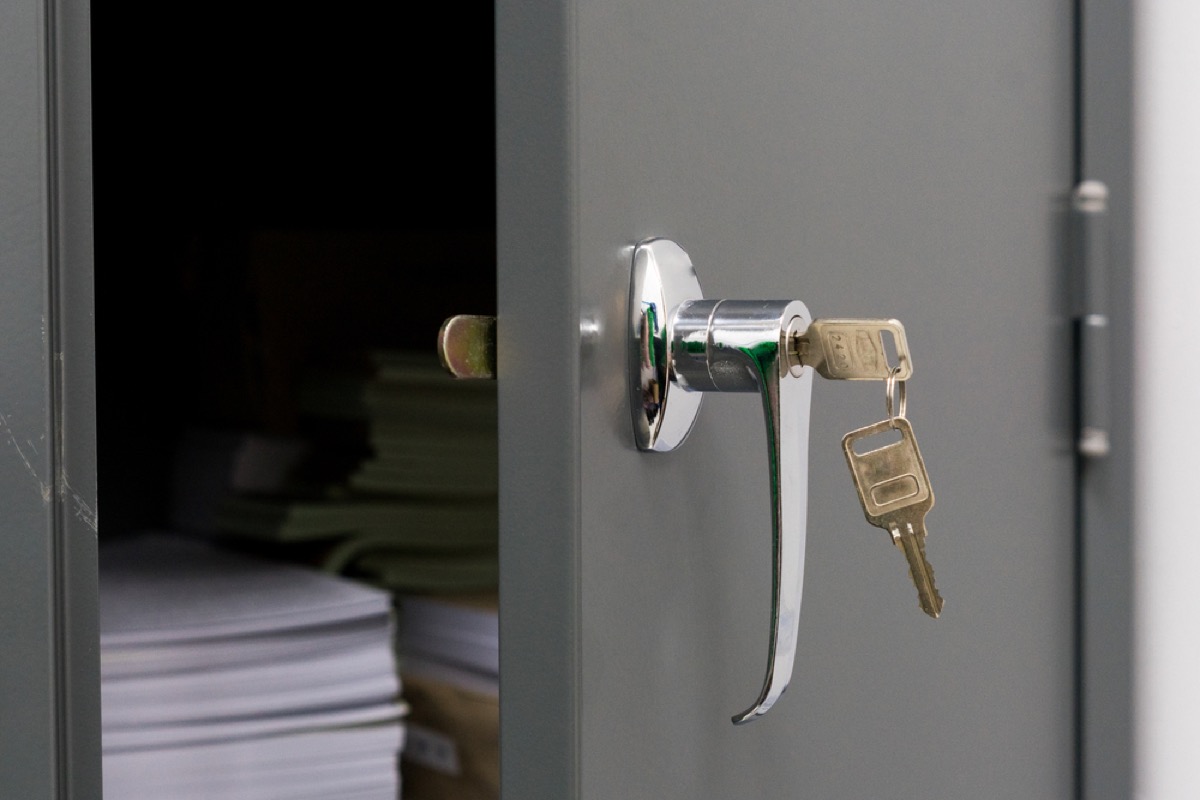
It’s not just jewelry, cash, and electronics burglars are looking for—any information about your bank accounts or social security number can be a lucrative haul, too. That’s why it’s important to keep any hard copies of important documents locked away in a filing cabinet. Better yet, make sure that cabinet is “locked via a cable lock to a large item like a bed or dresser,” says Canavan. Burglars want to be in and out of your home quickly, meaning they’re unlikely to move around heavy furniture if they can avoid it.
21
Clamp your garage door shut from the inside.
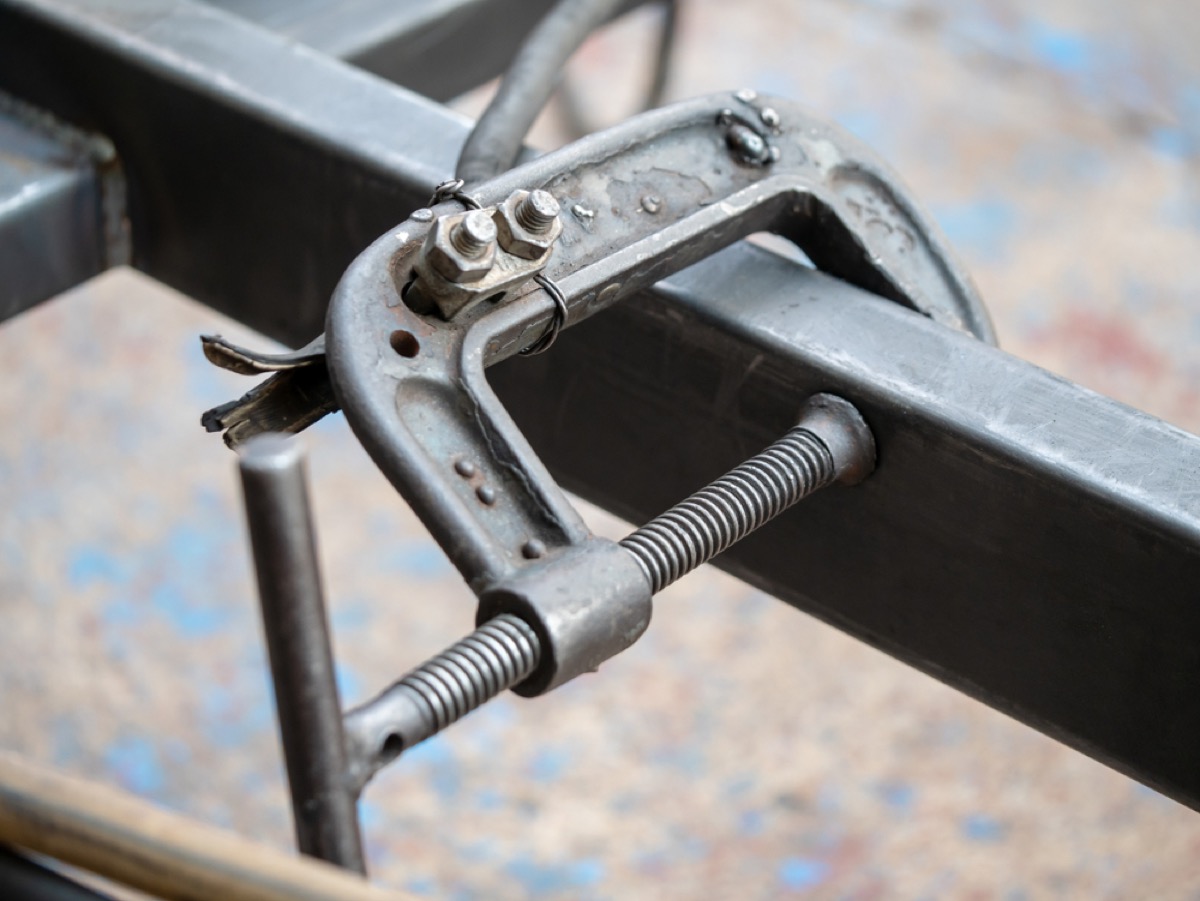
For just a few dollars, you can invest in some serious peace of mind. According to Wood, if you have a track-lifted garage door, “a C-clamp can provide extra security since the door cannot be opened if you tighten the C-clamp on the track next to the roller.”
22
Install security hinge pins on your front door.
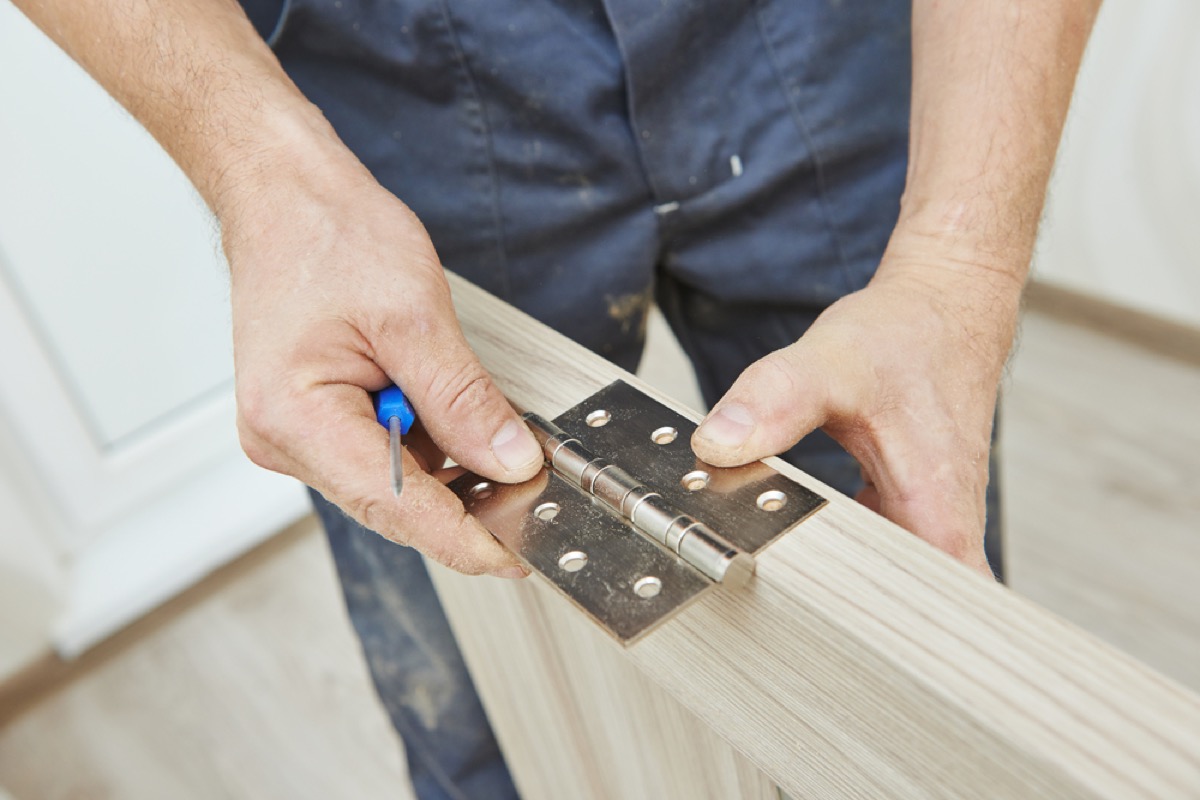
Even if your exterior doors seem solid, there’s a way to make them practically burglar-proof. Wood says that if your door has hinges on the outside, simply “[replacing] one of the screws in each hinge with a ‘security hinge pin’”—available at most hardware stores—can make it exponentially harder to break in.
23
And replace your existing front door screws with longer ones.
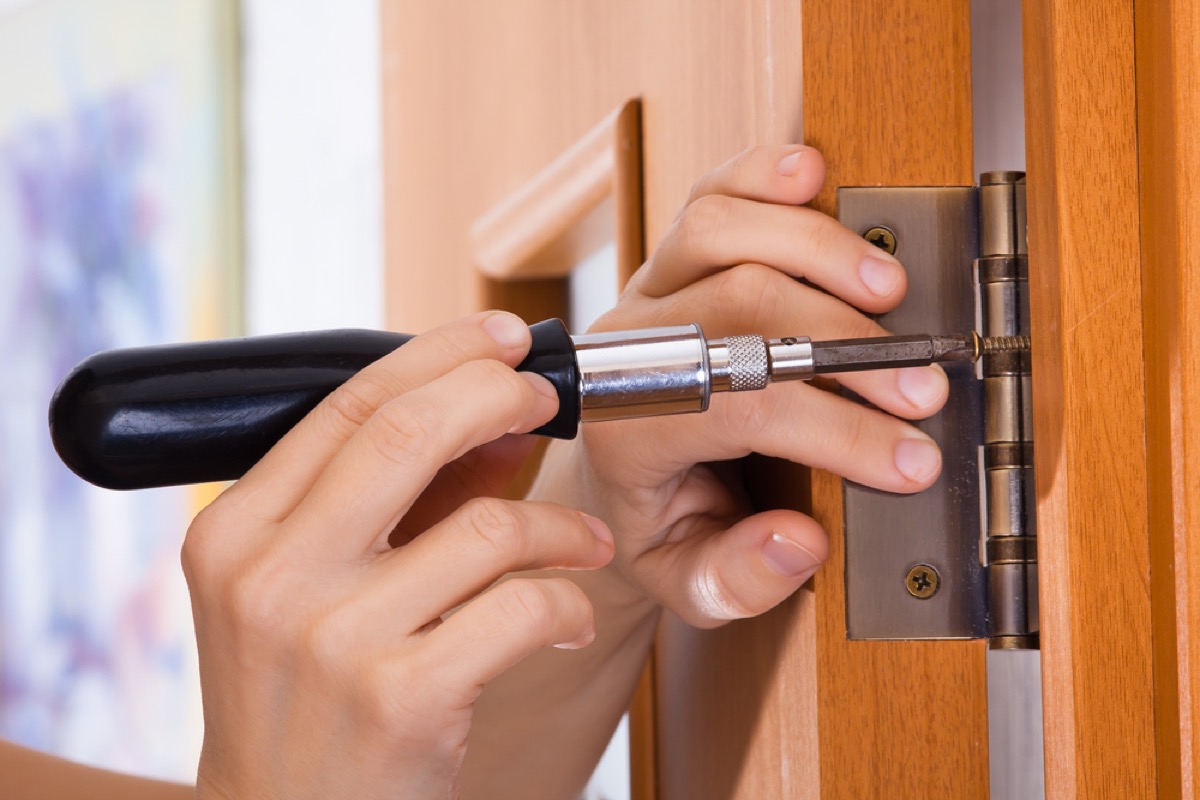
Similarly, adding a little reinforcement to the screws holding on your hinges can make a major difference. To add strength to your door hinges and hardware, “replace these screws with 3-inch or longer screws that go past the frame and into the studs,” suggests Wood.
24
Invest in slide-proofing for your patio doors.
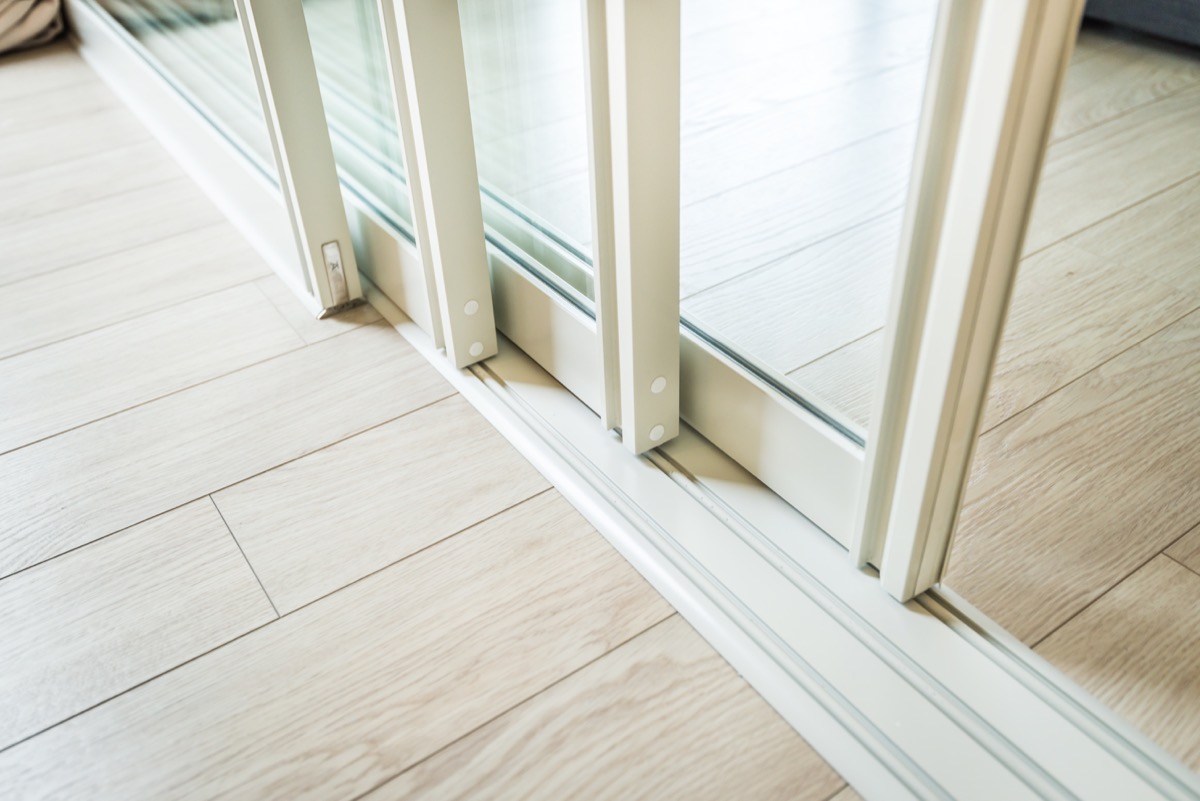
Something as simple as a pipe could mean the difference between a home that gets robbed and one that stays secure. Even if you don’t have a security system, “you can burglar-proof your glass patio doors by setting a pipe or metal bar in the middle bottom track of the door slide,” says Wood. The pipe or bar should be cut to the exact length of the track it’s filling, he notes.
25
Replace any rotted window or door frames.
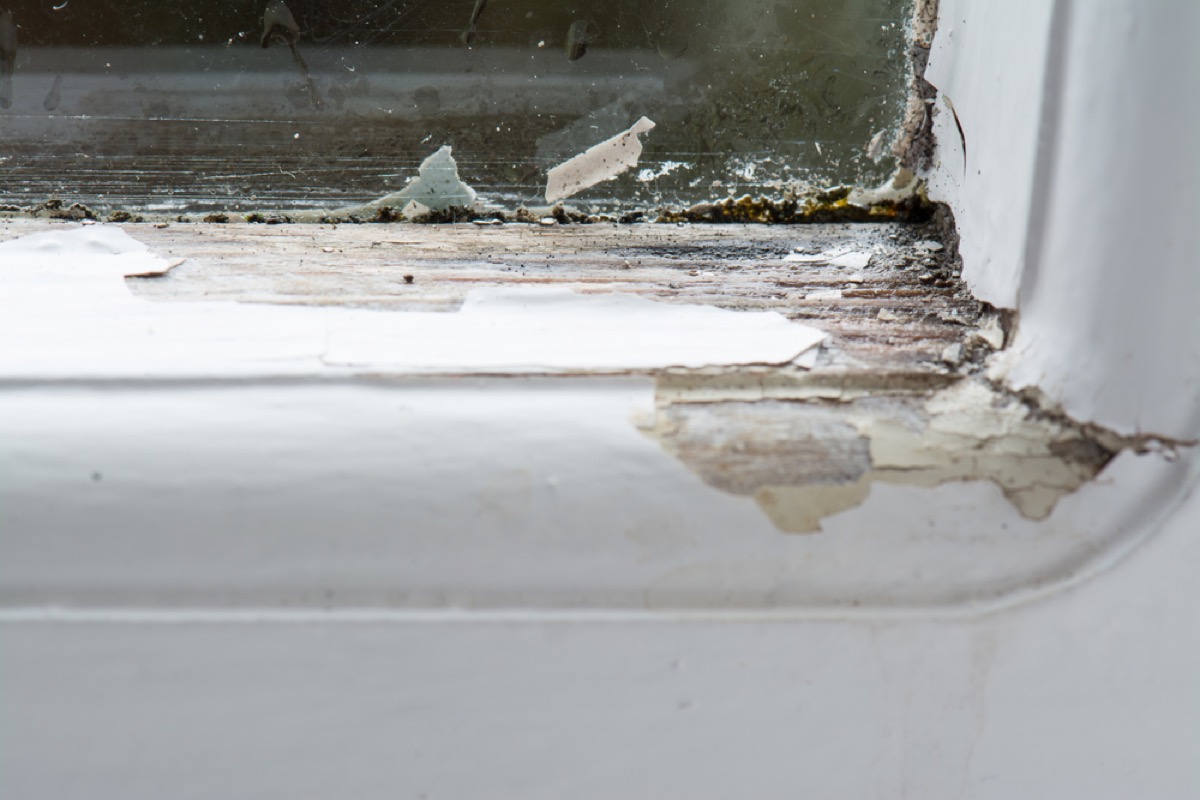
That wood rot around your doors and windows is more than just unsightly—it’s a security risk, too. “It’s easy for a burglar to pry through rot,” says Wood.
Expeditiously replacing any moisture- or termite-weakened door frames with solid pieces will help keep your home more secure in the long run.
26
Frost your garage windows.
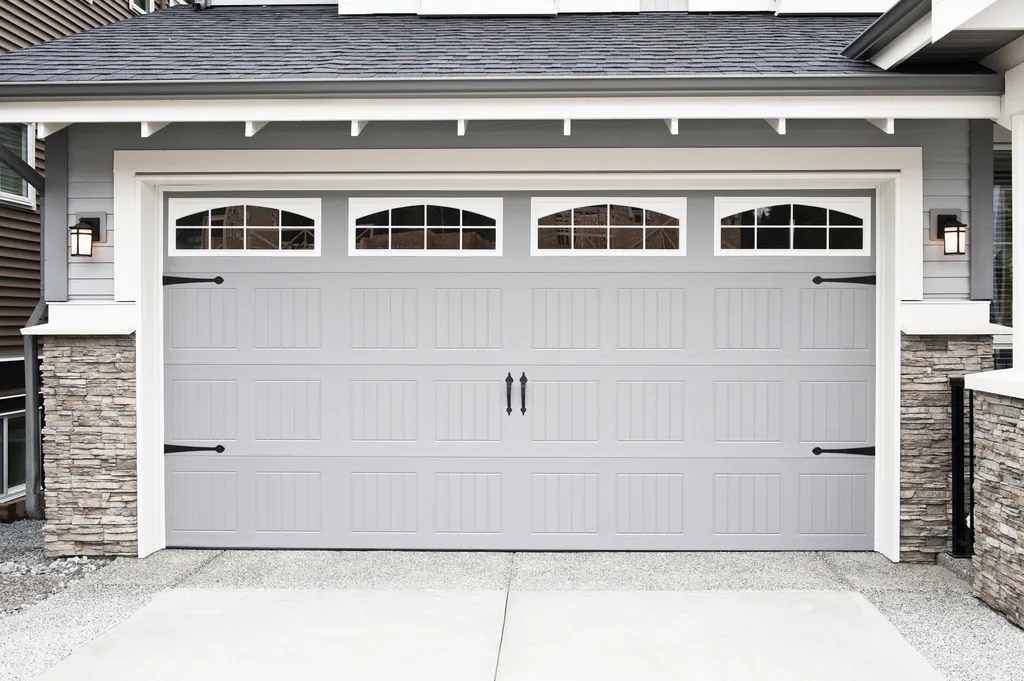
While leaving your garage door closed is a good start, if you want to really protect your home, it’s important that you make it hard for burglars to see if that garage is occupied in the first place.
“If you frost or cover your garage windows, burglars won’t be able to tell if your car is gone,” says Wood. Fortunately, you can pick up window frosting film at virtually any hardware store and easily cut it to size without having to call in a professional.
27
Consider replacing your glass-paneled doors.

That glass-paneled door may lend your home some charm, but it also presents a serious security risk.
“It’s simple for a thief to break glass panels and then reach in and open a doorknob from the inside,” says Wood. While the safest bet is to have any glass-paneled doors replaced entirely, you can also use security sticks that prevent the door from being pushed in to reinforce it or add security film to the glass that will make it shatterproof. And for more great ways to stay safe, check out these 27 Amazing Personal Safety Tips That Will Change Your Life.
To discover more amazing secrets about living your best life, click here to follow us on Instagram!